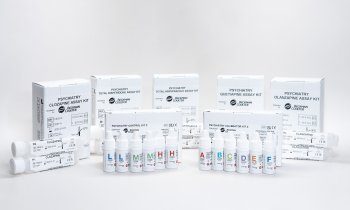Market
EIB supports Cavidi’s development of HIV viral load monitoring device
The European Investment Bank (EIB) has provided a EUR 10 million long-term loan to Swedish biotech company Cavidi AB for developing a next generation automated testing device for HIV viral load. This is the first transaction under InnovFin Infectious Diseases, an innovative high risk-taking financial instrument recently established within the new generation of financial products for innovative and growth companies – InnovFin.

Cavidi’s novel technology for HIV monitoring is proven to work in simple and less sophisticated laboratories, such as a non-cleanroom environment. These are common in low and middle-income countries, which are often hit worst by the HIV pandemic. The new testing device represents a breakthrough as the correct measurement of the actual viral load in HIV patients can contribute enormously to the efforts to reduce the growing AIDS epidemic – maintaining a low viral load reduces the chances of transmission of the virus.
The company expects to launch this next generation HIV viral load monitor during 2016 and to quickly gain a significant share of the market for HIV diagnostics in near point of care centres such as district hospital laboratories in low and middle-income countries.
This first EIB operation under InnovFin Infectious Diseases is supported by the new generation of financial instruments for innovative and growth companies “InnovFin – EU Finance for Innovators”, with the financial backing of the European Union under Horizon 2020. The aim of InnovFin Infectious Diseases is to allow the EIB to fund high-risk projects in the area of infectious diseases, where the risk is linked to the successful development of innovative vaccines, drugs or medical devices, and to their future commercialisation.
Jonathan Taylor, EIB Vice-President with responsibility for lending in Sweden, stated: “We are pleased to be partnering with Cavidi in this breakthrough operation as it will enable the EU bank to support future technologies whose concrete applications will effectively tackle the HIV pandemic. With this first InnovFin Infectious Diseases loan we confirm our commitment to providing easier access to finance, especially for higher-risk projects, in the medical sector. This is crucial to bridging the gap from pure research and development to commercially viable enterprises in Europe. Projects like this strengthen the competitiveness and boost the innovative capacity of European health-related industries and businesses, so enhancing Europe’s position as a major technology supplier and supporting skilled employment opportunities.”
John Reisky de Dubnic, CEO of Cavidi added: “The EIB’s new financing vehicles will play a key role in developing innovative companies and new commercial successes. These new financing sources are crucial as they are some of the few available for companies moving from an R&D success to a commercial product. We have a proven and effective technology that can benefit millions of people in high-burden countries. This support from the EIB will help us realise our technology faster and increase access to viral load monitoring for those living with HIV who need it most.”
Carlos Moedas, European Commissioner for Research, Science and Innovation, said: “This first loan under InnovFin Infectious Diseases will not only help speed up the development of an innovative device for monitoring HIV treatment for the benefit of patients, but will also support the growth of an innovative family-owned European business. This is one of many examples of how Horizon 2020, the EU funding programme for research and innovation, addresses major societal challenges, while stimulating European competitiveness and growth.”
Effective HIV monitoring reduces the cost of medication and the risk that a person living with HIV will infect others. It therefore helps manage the disease effectively and limits its spread and the future suffering and costs to society that this will cause.
Source: Cavidi
14.07.2015








